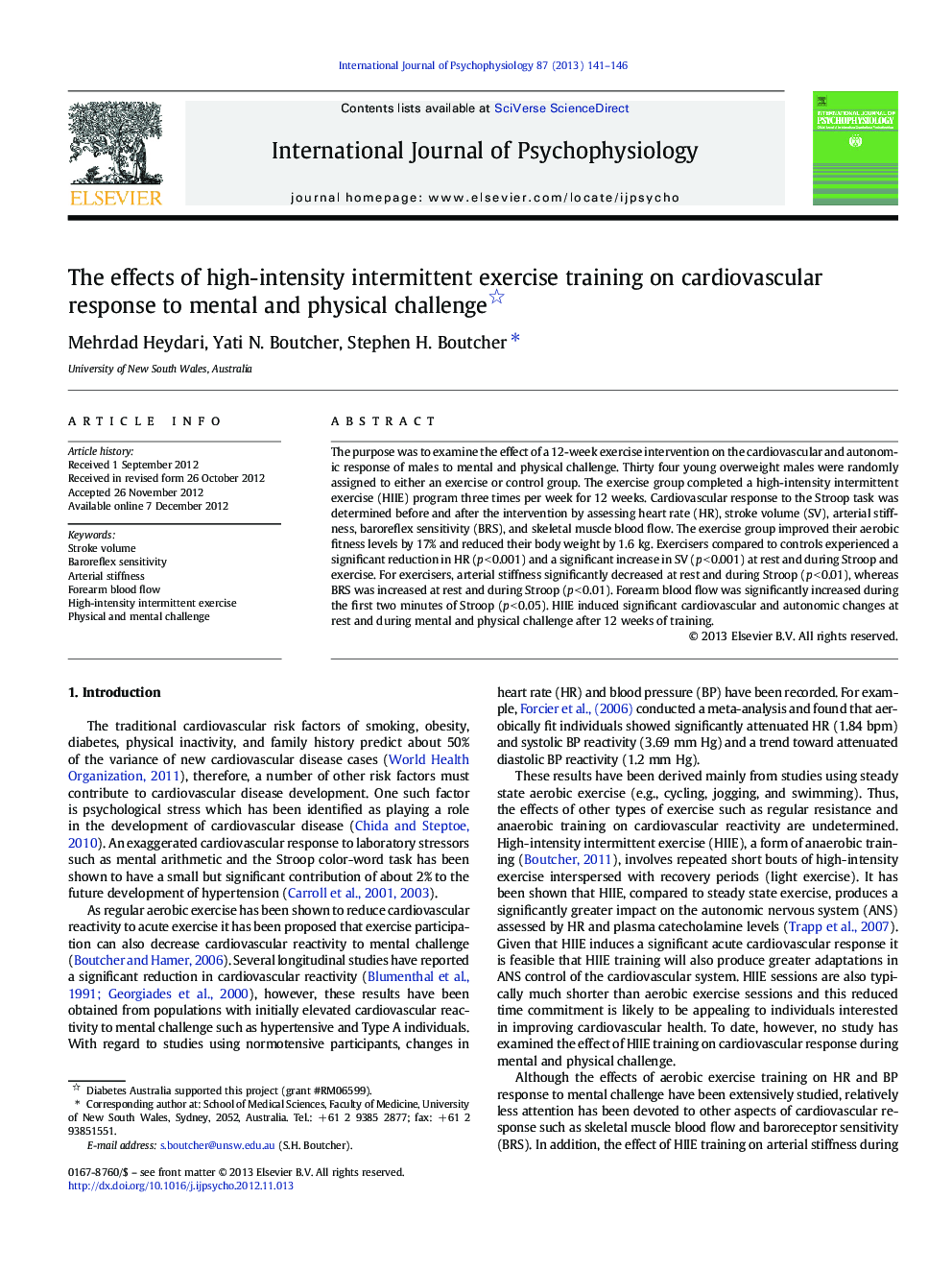| Article ID | Journal | Published Year | Pages | File Type |
|---|---|---|---|---|
| 929831 | International Journal of Psychophysiology | 2013 | 6 Pages |
The purpose was to examine the effect of a 12-week exercise intervention on the cardiovascular and autonomic response of males to mental and physical challenge. Thirty four young overweight males were randomly assigned to either an exercise or control group. The exercise group completed a high-intensity intermittent exercise (HIIE) program three times per week for 12 weeks. Cardiovascular response to the Stroop task was determined before and after the intervention by assessing heart rate (HR), stroke volume (SV), arterial stiffness, baroreflex sensitivity (BRS), and skeletal muscle blood flow. The exercise group improved their aerobic fitness levels by 17% and reduced their body weight by 1.6 kg. Exercisers compared to controls experienced a significant reduction in HR (p < 0.001) and a significant increase in SV (p < 0.001) at rest and during Stroop and exercise. For exercisers, arterial stiffness significantly decreased at rest and during Stroop (p < 0.01), whereas BRS was increased at rest and during Stroop (p < 0.01). Forearm blood flow was significantly increased during the first two minutes of Stroop (p < 0.05). HIIE induced significant cardiovascular and autonomic changes at rest and during mental and physical challenge after 12 weeks of training.
► Heart rate during Stroop was reduced after 12 weeks of HIIE. ► Stroke volume during Stroop increased after 12 weeks of HIIE. ► Arterial stiffness during Stroop was improved after 12 weeks of HIIE. ► Baroreflex sensitivity during Stroop was enhanced after 12 weeks of HIIE. ► Forearm blood flow during Stroop was enhanced after 12-weeks of HIIE.
